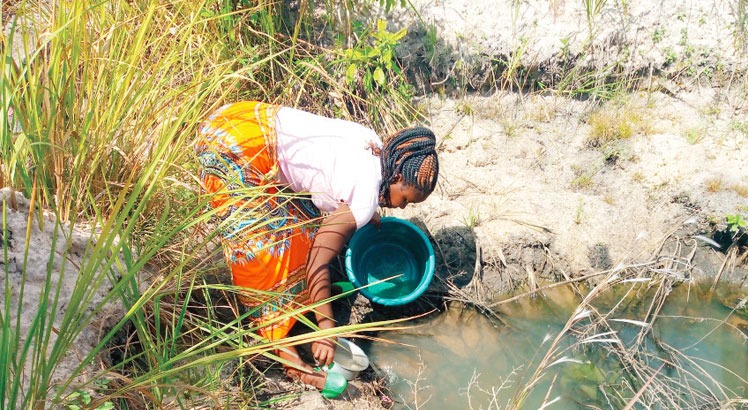It is Friday and the Malawi University of Business and Applied Sciences (Mubas) in Blantyre is bustling with students going out.
It is time off the books, the period Pemphero Magombo, 29, comes in handy. The bearded final-year student tagged Mfalisi like the unshaven Pharisees of old lends party lovers money for fun, connects some with “blessers” and sugar mommies and sells others pills to avert unintended pregnancies and HIV infections.
“I didn’t like the nickname, but later realised that the Pharisees were never short of wealth, wisdom, power and respect,” he says.
Magombo is not like the biblical Pharisees, who wanted an adulterous woman caught in the act to be stoned in line with the laws of Moses.
His room, complete with a fan, mini-fridge and a smart television, is a haven for a sex-for-money business and a go-to place for students looking for things their parents cannot provide.
Magombo challenges his fellow students to venture into small-scale business instead of wasting time on alcoholism and selling their bodies.
Mubas has become a source of transactional sex amid students’ plight
He enrolled at Mubas in 2019, swapping mining engineering with business administration to satisfy his passion. He announced his entrepreneurial instincts by selling zitumbuwa, tomatoes, emergency pills and sex stimulants called nkhondo kubedi.
Now boys and girls sneak into his room to borrow money and luxurious smartphones, especially iPhone 15s, to look rich.
Magombo happily cashes in on expensive appetites fanned by social media fads.
“From Facebook to Instagram, social media has made the youth desperate for lifestyles they cannot afford. As girls are increasingly impressed with men who own expensive phones, cars and money, boys don’t want to be left behind,” he narrates.
The borrowed lifestyle traps students in debt and an expanding sex web that fuels unintended pregnancies and sexually transmitted infections, including HIV.
Magombo’s phone purrs when the weekend kicks in.
He showed The Nation WhatsApp conversations with about 107 young men searching for sugar mommies.
“On a good weekend, I connect over 100 students to sugar mommies around Blantyre and get half the price the big mamas pay. Most young men resort to these hook-ups to survive because their parents cannot give them basic needs,” he explains.
A banking and finance student says he first dated a woman her mom’s age mate via Mfalisi.
He recalls: “I was in the first year and first semester. I had to choose between going to class hungry or doing something about it.
“Since he introduced me to the big mama, this is my life. I sometimes feel sorry for putting my life in danger, but I blame poverty and the unbearable cost of living.”
To Mubas students and graduates, the risky sex transactions are one of the chilling effects of the removal of free meals and accommodation in public universities.
Former student Taliona Matapa blames policymakers’ failure to cushion the needy from economic hardship.
“During our time, everything was provided free of charge: Food coupons, hostels, stationery and tuition. Strangely, they were scraped by people who benefitted from the free basics and now students have to fend for themselves.
Centre for Social Concern bills Blantyre the most expensive city in Malawi. A family of six requires K564.524 a month to survive, the think-tank estimates.
A third-year student, concealed as Wongani, revealed being connected to a man in his 50s to stay in school.
“My father died when I was in my second year, leaving me with no one to support me financially. The blesser supports my education, which is my only hope. I know the dangers, but I can’t afford to drop out,” she says.
Wongani says she sleeps with her sugar daddy without any protection to please him.
“We stopped using protection because the man is doing much for me. So, he cannot allow condoms and I don’t want to let him down,” she narrates.
Mubas gender, ethics and women affairs representative Selina Mbengo says the clandestine business unmasks the plight of students, especially needy girls.
“Times are hard, but fellow students should live within their means and explore alternative sources of funds instead of risking their lives to blessers, sugar mommies and loan sharks,” she says.
The student council member urges learners not to lose sight of their parents’ struggles to keep them in school.
“Our parents and nation invest so much for us, so it will be sad to see young men and women graduating with HIV because of short-time pleasure or peer pressure,” she explains.
The National Aids Commission (NAC) reports that 33 percent of over 15 000 new HIV infections in 2023 were recorded among girls and young women aged below 29. Boys of the same age constructed 24 percent.
The findings indicate infections are spiking in cities with higher learning institutions.
NAC communication’s specialist Francis Mabedi says economic hardships, substance abuse and low HIV awareness fuel risky sex transactions in colleges.
He says: “If nothing is done, the behaviour has the potential to erode the gains registered in the national response to HIV.
“There has been a decline in new infections over the years. If left unsolved, the numbers will start to alarm the country as it was in the early 90s.“
Education activist Benedicto Kondowe calls for social protection and counselling for at-risk students.
“Learners from poor families are more vulnerable to these risky behaviours because students’’ loans are not enough. The financial predicament puts them at the stake,” he says.
The post Dark side of Mubas low lights first appeared on Nation Online.
The post Dark side of Mubas low lights appeared first on Nation Online.
 Moni Malawi
Moni Malawi 

